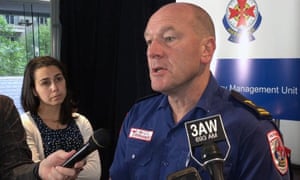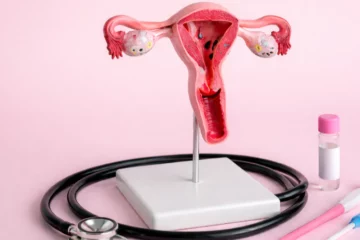
A third person has died in Victoria following extreme weather conditions which triggered a mass-outbreak of asthma in and around Melbourne.
Apollo Papadopoulos, 35, died from an asthma attack and after paramedics failed to revive him despite trying for more than 50 minutes , his friend Dee Kay, wrote on social media.
“We’re all in disbelief and shocked and our hearts go out all the family and close friends as Apollo was truly one of a kind,” Kay wrote.Ambulance Victoria said it could not confirm the report because an official review is under way. The deaths during Melbourne’s “thunderstorm asthma” event are being investigated by health authorities as part of a review examining how Victoria’s emergency services and health system responded.
A high pollen count combined with severe thunderstorms and winds led to pollen being broken up into particles small enough to enter people’s lungs, triggering a mass asthma event on Monday night. Paramedics dealt with an unprecedented 1,900 emergency calls in five hours on Monday evening and hundreds more people streamed into hospitals.
High school student Omar Moujalled, 18, and law student Hope Carnevali, 20, also died. Carnevali’s family said she died while waiting 40 minutes for an ambulance and said they wished they had taken her to hospital themselves.
“We don’t blame the paramedics because they do a fantastic job,” Hope’s uncle John Carnevali told 3AW on Wednesday.
“It’s just that the system needs to be changed … to let people know, if they can’t get there in a certain time and they think it’s pretty bad, drive yourself to hospital if possible.”
John Carnevali said if Hope’s family had been told there could be a wait of 30 minutes or longer they would have driven her to Werribee hospital, less than 10 minutes away.
“We wouldn’t have waited because she was struggling to breathe,” he said. “She would have had a very good chance.”
He said Hope’s mother made the first call to emergency services, followed by another 10 minutes later. She was told an ambulance “was not far away”.
John Carnevali’s sister called again five to 10 minutes later and was again told “just wait it’s not far”, he said.
Then Hope stopped breathing and family members performed CPR for about 20 minutes until the ambulance arrived.
“By then she only had a slight heart beat,” her uncle said.
The Victorian premier, Daniel Andrews, said the deaths were “desperately sad”.
“Our commitment to those families is we will learn from what’s gone on here. We will make the necessary improvements,” the premier said.
The Victorian health minister, Jill Hennessy, said the storm put unprecedented demand on the health system. She is waiting for details of the deaths.
“This was a health emergency of an unprecedented scale, and we have an obligation to ensure that we learn every lesson there is to learn from this event,” she said.
“This review will make sure that should this, or an event of a similar scale, ever occur again we have the right systems, measures and resources in place to provide the very best response.
“We will continue to invest in our health and ambulance services to make sure that whatever the situation, Victorians can have confidence that in an emergency they will get the care and treatment they need, when they need it.”
Ambulance Victoria says it will complete a clinical review within a few days as to whether the two deaths were related to ambulance delays and the asthma event.
Thunderstorm asthma is caused when dust and pollen is blown in before or during a thunderstorm. The moisture then causes the pollen grains to burst into hundreds of fragments tiny enough to penetrate deep into the airways.
“We essentially had a day’s workload within five hours,” Ambulance Victoria’s executive director of emergency operations, Mick Stephenson, said on Tuesday. “This includes 200 cases for asthma and we were seeing asthma in people who had not experienced breathing issues before.”
During the thunderstorm on Monday, buildings were damaged, roof tiles ripped off houses and cars were damaged. The rain and strong winds also churned up pollen, dust and other irritants in the air.
Kathy Bowlen from St Vincent’s Hospital told 3AW on Tuesday: “The emergency department was actually considering opening a temporary ED in the foyer of the hospital, just to cope with the demand.”
[Source:-The Guardian]




